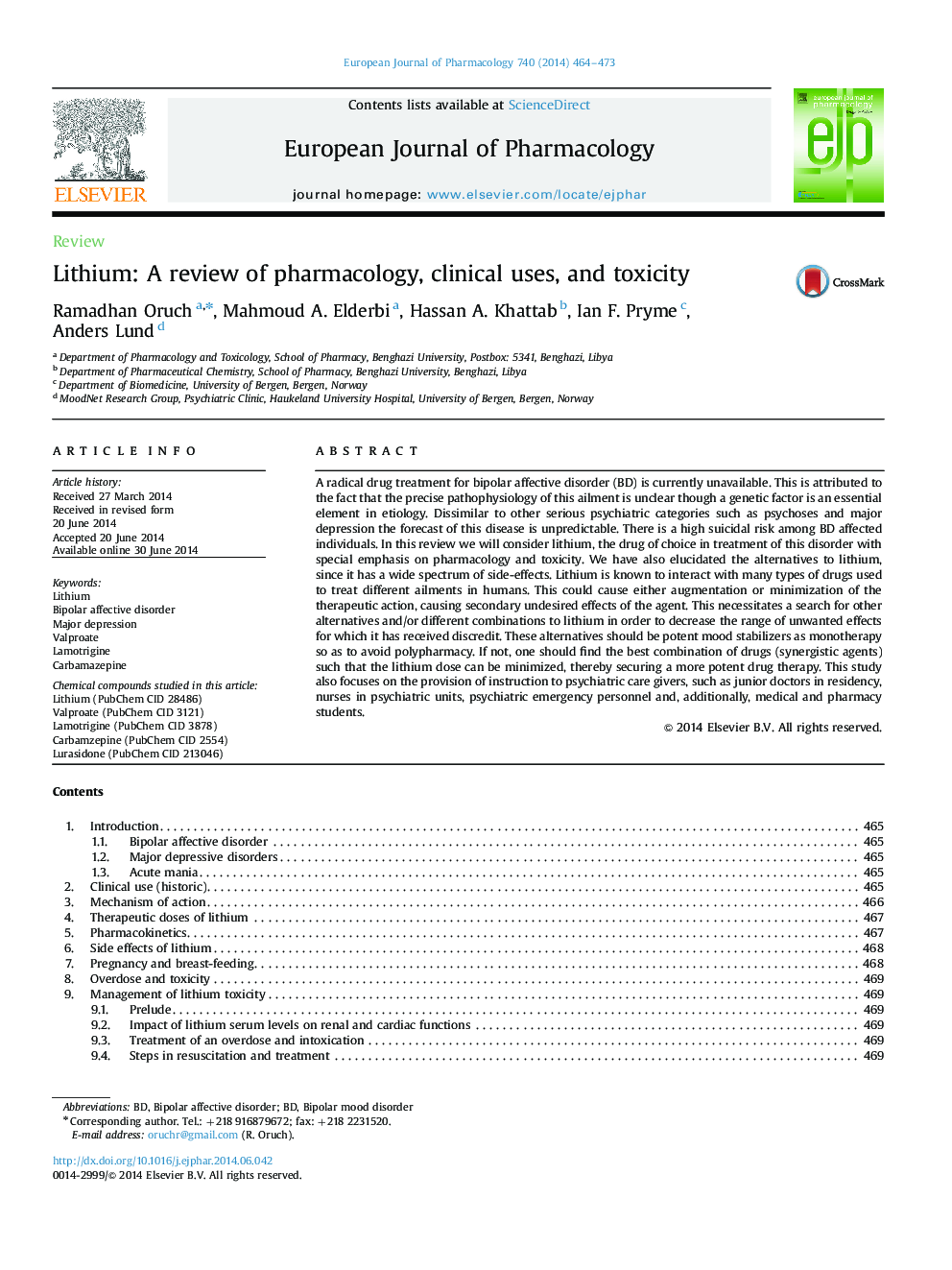| Article ID | Journal | Published Year | Pages | File Type |
|---|---|---|---|---|
| 2531600 | European Journal of Pharmacology | 2014 | 10 Pages |
A radical drug treatment for bipolar affective disorder (BD) is currently unavailable. This is attributed to the fact that the precise pathophysiology of this ailment is unclear though a genetic factor is an essential element in etiology. Dissimilar to other serious psychiatric categories such as psychoses and major depression the forecast of this disease is unpredictable. There is a high suicidal risk among BD affected individuals. In this review we will consider lithium, the drug of choice in treatment of this disorder with special emphasis on pharmacology and toxicity. We have also elucidated the alternatives to lithium, since it has a wide spectrum of side-effects. Lithium is known to interact with many types of drugs used to treat different ailments in humans. This could cause either augmentation or minimization of the therapeutic action, causing secondary undesired effects of the agent. This necessitates a search for other alternatives and/or different combinations to lithium in order to decrease the range of unwanted effects for which it has received discredit. These alternatives should be potent mood stabilizers as monotherapy so as to avoid polypharmacy. If not, one should find the best combination of drugs (synergistic agents) such that the lithium dose can be minimized, thereby securing a more potent drug therapy. This study also focuses on the provision of instruction to psychiatric care givers, such as junior doctors in residency, nurses in psychiatric units, psychiatric emergency personnel and, additionally, medical and pharmacy students.
